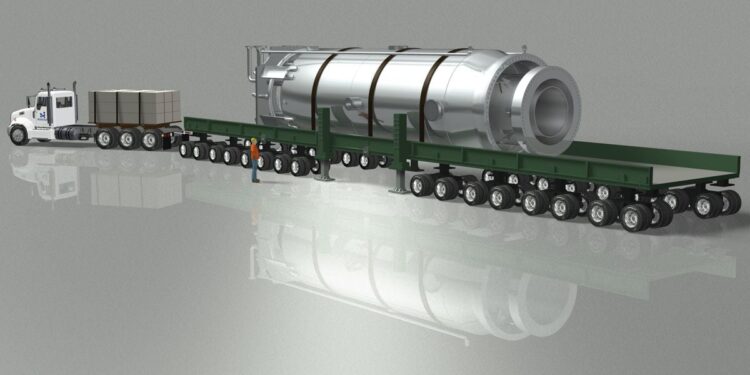NuScale Power and the Utah Associated Municipal Power Systems announced Wednesday that they’ve agreed to terminate the small modular reactor Carbon Free Power Project, or CFPP.
“Despite significant efforts by both parties to advance the CFPP, it appears unlikely that the project will have enough subscription to continue toward deployment. Therefore, UAMPS and NuScale have mutually determined that ending the project is the most prudent decision for both parties,” NuScale and UAMPS said in a press release.
Nuscale said in March that it would need to reach an 80% subscription level by February 2024 for the project, which was expected to include six 77-MW modules for a total of 462 MW and be built at the Department of Energy’s Idaho National Lab.
The project, which was expected to be the first commercial SMR in the U.S., faced rising costs. In January, NuScale raised the target price for power from the SMR to $89/MWh from $58/MWh, citing a “changing financial landscape for the development of energy projects nationwide.”
Despite the termination of the CFPP, NuScale President and Chief Executive Officer John Hopkins said Wednesday during NuScale’s Q3 earnings call that the company is focused on deploying its SMR modules and is “poised to expand into new markets, applications and capabilities.” Hopkins highlighted a number of other partnerships and projects, including plans to develop two NuScale VOYGR-12 power plants that will have a combined capacity of nearly 2 GW and power nearby data centers in Ohio and Pennsylvania.
“Though there are risks to any project, the CFPP presented unique challenges that NuScale does not expect will be replicated with other customers,” Diane Hughes, vice president of marketing and communications at NuScale, said in a statement to Utility Dive.
Industry groups expressed disappointment but understanding of the decision.
“Innovation — particularly in new technologies — is defined by fits and starts. And innovation in next-generation nuclear is no different,” a spokesperson for the Nuclear Energy Institute said in an email.
“Although the Carbon-Free Power Project is not moving forward at this time, it is not a question of the promise of next-generation nuclear but rather the comfort that the customer has in being the first to bring the product to market. We have no doubt that NuScale has a design that will deploy and bring clean and reliable energy in the future,” the NEI spokesperson continued.
“Setbacks are to be expected when it comes to pioneering technology like small modular reactors. Advanced nuclear is still coming,” Craig Piercy, CEO and executive director of the American Nuclear Society, said in a statement to Utility Dive.
Other stakeholders sounded a note of caution.
“The termination of NuScale’s agreement with its one and only genuine customer is a clear demonstration of the fragility of the so-called advanced nuclear power industry. The industry is largely driven by an oversupply of reactor developers who are searching for utilities and other end users willing to pay premium prices for experimental, untested technologies,” Edwin Lyman, director of Nuclear Power Safety at the Union of Concerned Scientists, said in an email.
“However, even with the potential for large government subsidies, such customers justifiably remain wary. Small modular reactors will generate more expensive electricity than large reactors (which themselves are not economical to build at present). Despite all the hype about the promise of SMRs circulating in the media, they cannot overcome the fundamental principle of economies of scale,” Lyman continued.
Lyman further noted that for all its problems, “Nuscale is one of the designs with the best prospects for commercialization because of its similarity to conventional light-water reactors.” The failure of the UAMPS/NuScale project “does not bode well for the dozens of other, more exotic reactor types in various stages of development that are being touted as the next best thing in nuclear power, such as sodium-cooled fast reactors, gas-cooled reactors and molten-salt reactors,” he continued. “They will be even riskier bets than NuScale for the foreseeable future.”
NuScale’s stock price was down more than 30% Thursday morning.






